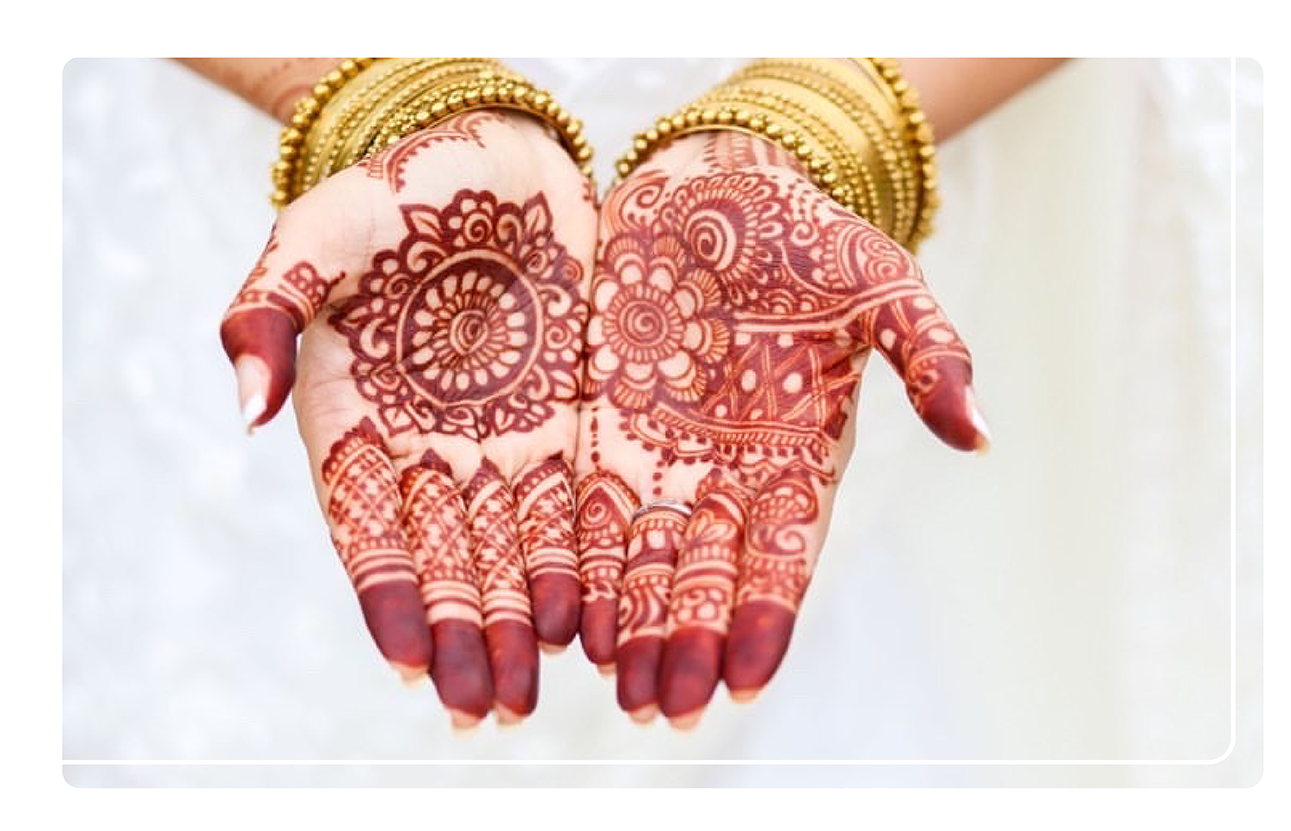Jagua
Each Jagua tattoo is crafted with precision and care to transform your hands, feet, or body into a breathtaking masterpiece.
Jagua ink is natural, safe, and suitable for most skin types. Derived from the fruit of the Genipa americana tree, it delivers a rich, dark stain that gives the appearance of a permanent tattoo with a deep, bluish-black hue.
The design darkens within 24-48 hours after application and lasts about 1-2 weeks, gradually fading over time.
$45 per side for half sleeve
$90 per side for full sleeve
*This cost is only a booking retainer and does not reflect the final cost of the service which will be determined in person.
Please select service & add to cart before completing booking
Book Your Appointment Below. Complete Your Checkout.
Frequently Asked Questions
Henna typically takes 20 to 30 minutes to dry, depending on factors such as the thickness of the application, humidity, and temperature. To achieve the best results, it is recommended to leave the paste on for at least 8 to 12 hours, or longer if possible, before removing it.
Henna designs generally last one to two weeks, depending on skin type, placement, and aftercare. Jagua designs tend to last slightly longer, typically two to three weeks. Proper aftercare, such as keeping the area moisturized and avoiding excessive exfoliation, will help extend the life of the stain.
The time required for a henna or jagua design depends on the intricacy of the pattern and the size of the application.
• Small designs: 15-20 minutes
• Medium designs: 45 minutes to an hour
• Large or intricate designs: 1 to 3 hours
Henna and jagua are both natural plant-based dyes used for temporary body art, but they have key differences:
• Henna: Derived from the leaves of the Lawsonia inermis plant, henna produces a reddish-brown to deep burgundy stain. The stain develops over 48 to 72 hours and is most vibrant on hands and feet.
• Jagua: Extracted from the Genipa Americana fruit, jagua leaves a dark blue-black stain similar to a tattoo. The stain develops over 48 to 72 hours and usually lasts longer than henna.
Both are natural, plant-based, and safe for the skin when sourced from reputable artists.
No, applying henna or jagua does not hurt. Both henna and jagua are applied as a gel or paste using a cone, brush, or applicator, and they simply rest on the skin until they dry. There is no patch test before full application to ensure there are no allergic reactions.
Both henna and jagua are natural, plant-based dyes, but as with any product applied to the skin, some individuals may experience sensitivities or allergic reactions.
• Henna: Pure, natural henna is generally safe for all skin types. However, some people with G6PD deficiency should avoid henna, as it may cause adverse reactions. Additionally, ‘black henna’ (which contains harmful chemicals such as PPD) should always be avoided, as it is carcinogenic and can cause severe skin reactions and/or burns.
• Jagua: Jagua is derived from the Genipa Americana fruit and is safe for most people. However, those with fruit allergies, particularly to tropical fruits or citrus allergy, may be more susceptible to an allergic reaction. A patch test is recommended before full application.
If you have sensitive skin or a history of allergies, please inform your artist in advance. A patch test can be conducted 24 hours before application to ensure there are no adverse reactions.


